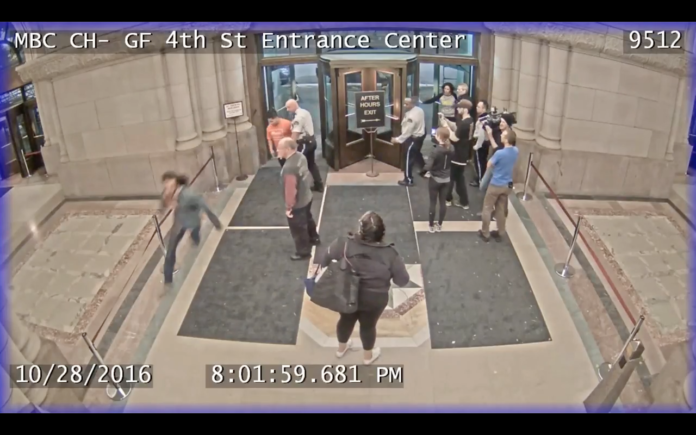First-term council member supported DAPL protests in City Hall despite security warnings.
Minneapolis, MN – The Municipal Building Commission rebuked first-term Minneapolis City Council Member Alondra Cano for failing to follow established building procedures during an October 28, 2016 sit-in in front of Hennepin County Sheriff Rich Stanek’s office.
Cano released the letter on her Facebook page Tuesday. The letter is dated Dec 30 and is signed by Council President Barb Johnson and Hennepin County Commissioners Jan Callison and Peter McLaughlin. All three serve on the Municipal Building Commission (MBC), which oversees City Hall among other buildings.
“MBC staff observed you encouraging demonstrators to remain in the building, physically touching security staff, opening locked exterior doors from within so others could gain entry, providing food to them and interfering with building staff’s directions,” reads the letter, “MBC staff reported that you made references to holding a meeting, however, you did not comply with the after-hours access procedures.”
This incident occurred following Stanek’s decision to send some of his deputies to North Dakota to assist officials there with the North Dakota Access Pipeline protests. That decision spurred a large demonstration at City Hall which included an occupation of the office until after 10 p.m. more than four hours after the usual close of business for City Hall.
Cano’s Facebook post compared her actions to the lunch room sit-ins of the civil rights movement, and she vowed to continue to act as she has been.
“I will continue to open the doors of City Hall for our low-wage workers, our water protectors, and our Black Lives Matter youth,” wrote Cano, “I will be there to open the doors of City Hall to the hundreds of immigrant families seeking true sanctuary and refuge from the horrific actions of Donald Trump.”
According to Cano she released both the letter and the security footage after learning that a media entity had filed a data practices act request for both the video and the letter.
Cano has a history of controversial activism during her time on the Minneapolis City Council. In December 2015 a petition circulated to recall her after she Tweeted out personal information of constituents critical of her. This included names, phone numbers, emails, and addresses. She went on to threaten her fellow councilmembers after an ethics report on the December 2015 incident failed to rule in her favor.
Callison, president of the MBC, told the Star Tribune that the letter is the first of its kind the commission has sent during her three-year tenure on the board.





